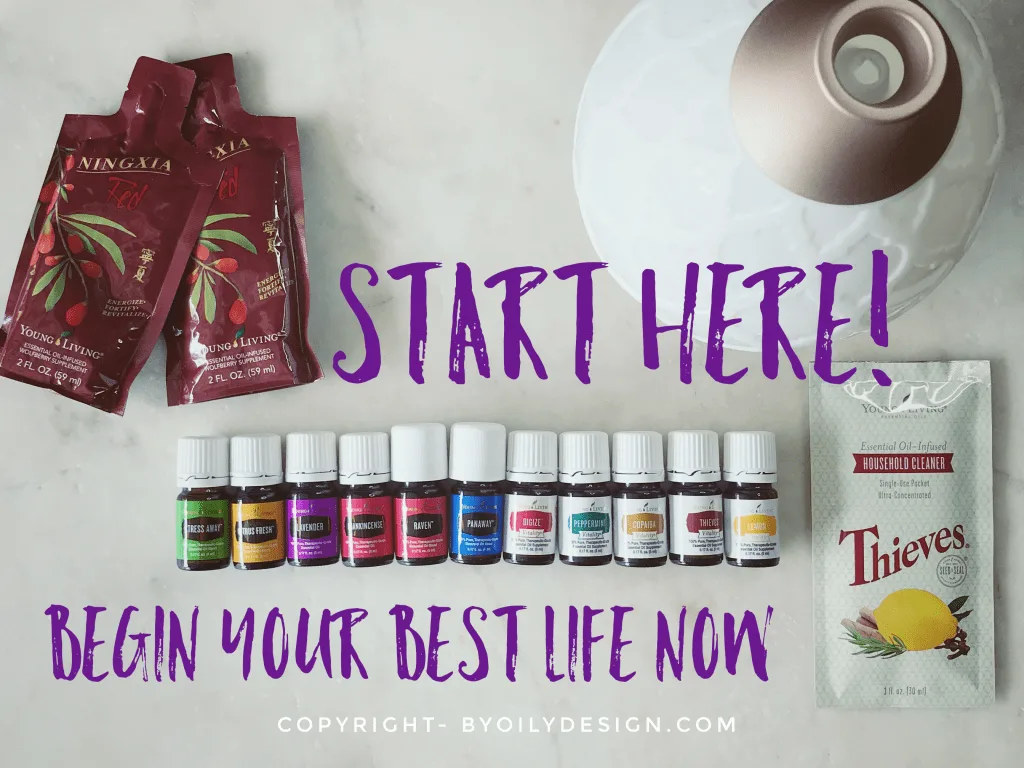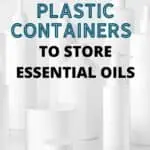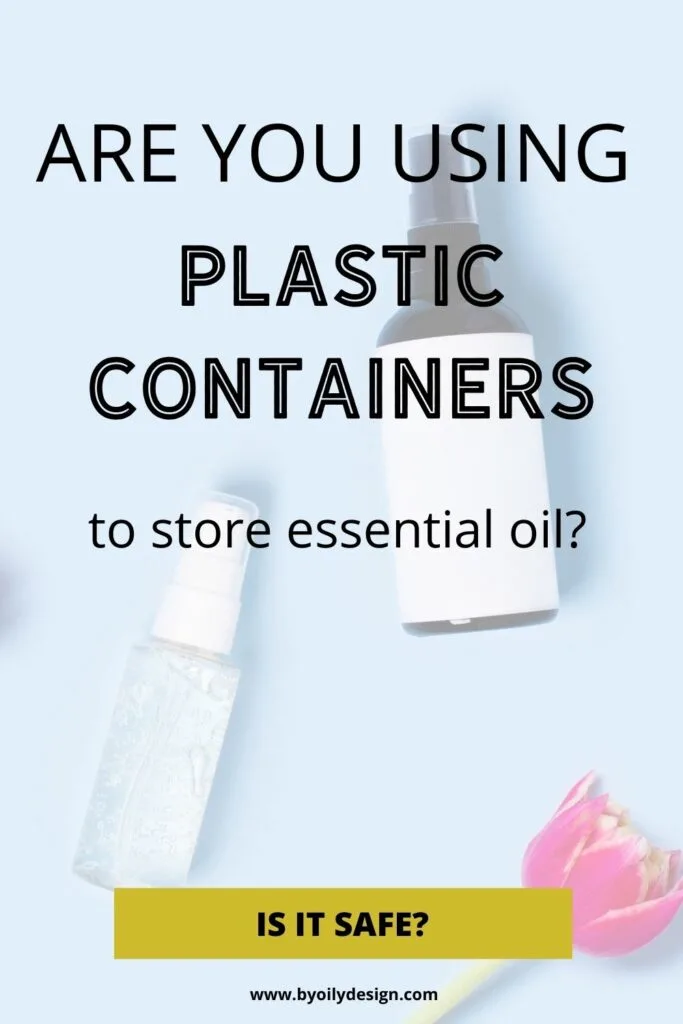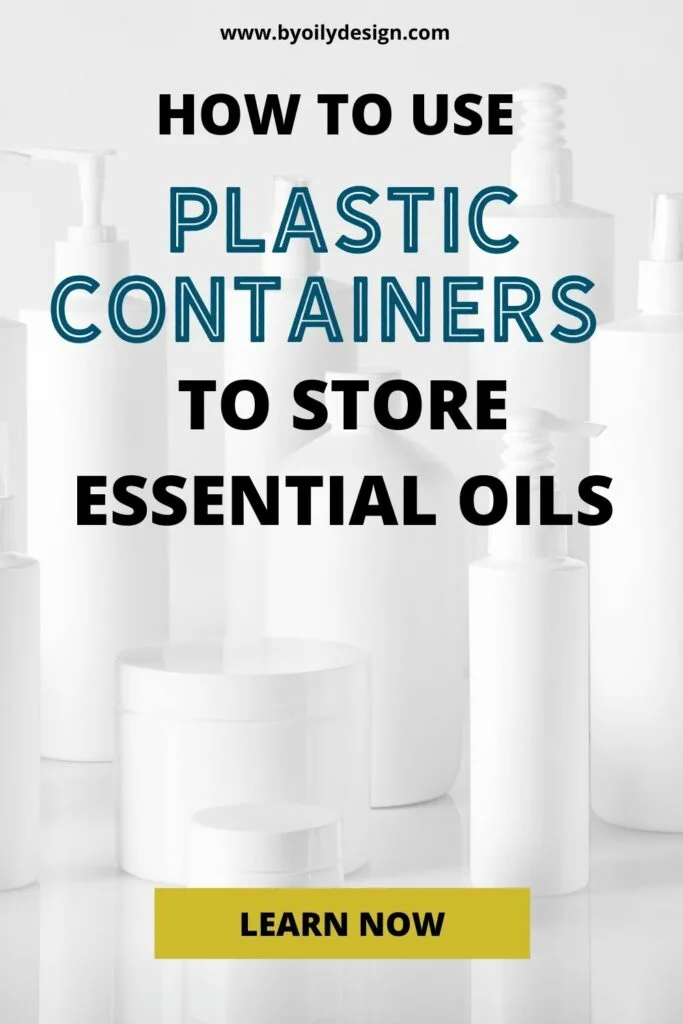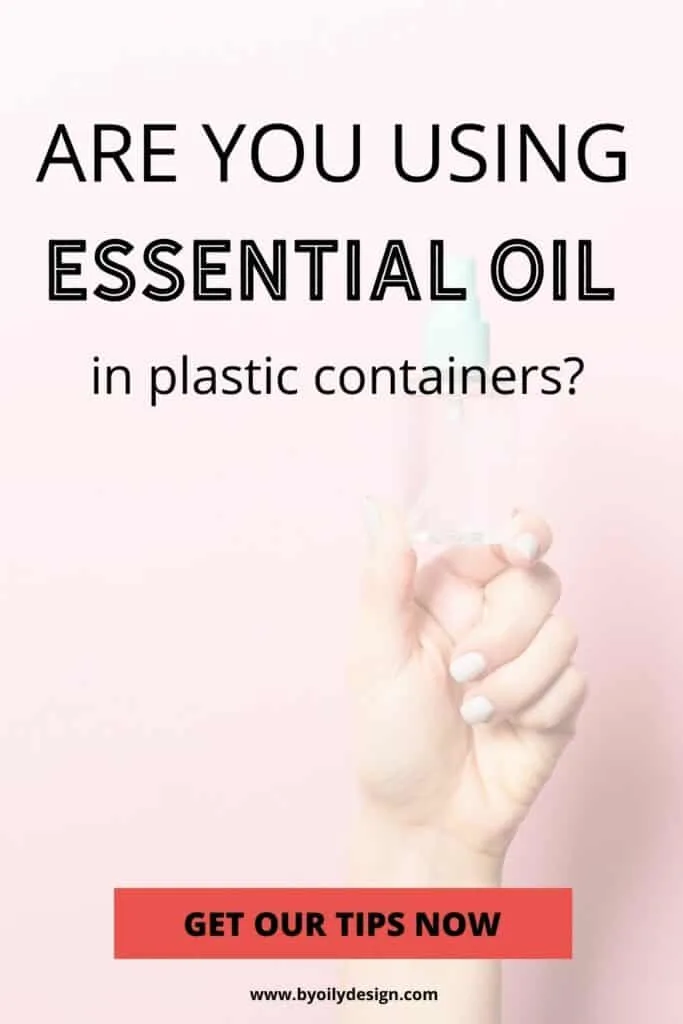Years ago when I was new to using pure essential oils I was scared to death I would mess up and do something wrong. I had heard all these comments about plastic containers and how storing essential oils affect plastics and that it was totally not a good idea.
But then I would see all these wonderful essential oil products from companies like Young Living where they contained essential oil mixtures but they were being stored in high-quality plastic bottles. I was so confused. So to stop the confusion we did some research on the varieties of plastics and learned some pretty interesting information on what you can use and what you want to stay away from and why.
Essential oils are highly concentrated extracts of beneficial plants containing volatile chemical compounds. Good quality undiluted essential oils come stored in airtight containers. However, when you use them and create blends, you may often wonder if you can store these DIY products in plastic containers.
While glass bottles are still the best option for storing essential oils, you may be surprised to know you can keep them in certain plastic-type containers as well.
*This post contains affiliate links to the essential oils and other products I talk about in the post. Purchasing them here from my blog is no extra cost to you but I do earn a commission that helps in the cost of running this blog. Thanks for your support!
What type of plastic is safe for essential oils?
While seven types of plastics are available depending on the material used to create them, only two plastic types are considered safe for essential oils – PET and HDPE. The other types of plastics react with the compounds present in the essential oils and degrade them to form toxic compounds.
1. PET
Polyethylene terephthalate is a type of plastic that is commonly used to make soda or water bottles. It is safe for storing essential oils. It is considered safe for a single-use when storing food items.
This type of plastic is commonly recycled to form new bottles or containers, textiles, and clothing.
If you plan to use a PET bottle to store essential oil, check the bottom of the bottle for a #1 logo. This plastic number at the base of the bottle will help you know which type of containers are safe.
The only negative point about this plastic is that PET bottles are usually clear, which is not ideal for storing essential oils.
2. HDPE
High-density polyethylene is another type of plastic that is considered safe for storing high grade essential oils. It does not transfer any chemical to the items stored in it.
HDPE plastics are commonly used in the food and cosmetic industry. Your cream and shampoo containers are usually made up of HDPE plastics.
You can identify an HDPE plastic by locating the #2 plastics number logo on the bottom of the container.
HDPE plastics are usually less transparent than pet bottles. As compared to PET containers, storing essential oils in HDPE bottles can extend their shelf life.
HDPE or PET – which is better for storing essential oils?
- PET bottles do not have as high-temperature resistance as HDPE containers. While PET bottles have a maximum temperature resistance of 131 degrees Fahrenheit, HDPE containers have a maximum temperature resistance of 167 degrees Fahrenheit.
- PET containers can handle cold temperatures of about – 40 degrees Fahrenheit, HDPE containers can withstand temperatures up to -110 degrees Fahrenheit.
- HDPE is a high-density plastic that is stiff and has a good water vapor barrier. PET plastics are transparent, lightweight, and highly resistant to diluted acids, oils, and alcohols.
HDPE is known for its strength and durability. While they are not as clear as PET plastic, HDPE bottles and containers can be translucent so you can see your product inside the bottle. This type of plastic can also be color-matched and is popular in white.
When choosing between the two for use with essential oils, both are a good choice. While HDPE offers better temperature resistance, PET is transparent and comes in various colors.
Why do essential oils break down plastic?
Essential oils contain chemical compounds that can create a chemical reaction and dissolve some plastics. Since essential oils are highly concentrated, they can break down the plastic containers over time, causing leaks and loss of precious oils.
Plastics have a resin identification code, which can help you identify what they are made up of. There are seven different types of plastics. While plastics #1 and #2 can be used to store your favorite essential oils, the other cannot.
For example, if lemon oil is stored in polystyrene (#6) containers, it will degrade the plastic. The chemicals in lemon oil disrupt the Van der Waals forces, causing the polystyrene chains to break apart from one another.
Can you store diluted essential oils in plastic bottles?
Essential oils are highly concentrated and should not be used directly on the skin. However, mixing them with carrier oils like coconut oil or almond oil can help to lower their strength so that they can be applied to the skin safely.
You can safely store these diluted essential oils in plastic containers, especially PET and HDPE plastics. Whenever you store your essential oils in a plastic container, make sure it has an airtight lid. If the cap is not airtight, essential oils can evaporate from the bottle.
What are the safe containers to use with essential oils?
Glass containers
Glass containers are the best choice when it comes to essential oil containers. Oil cannot permeate through glass, which makes them a safe choice.
Storing essential oils in a clear glass bottle cannot prevent the UV rays from influencing the quality of the oil. So, it is better to use amber-colored essential oil glass bottles.
Stainless steel containers
Steel containers are another great choice as they too do not interfere with the quality of essential oils. Another benefit of using steel containers is that it is durable and unbreakable, unlike glass.
You can also use steel containers when mixing essential oils and creating a new recipe. Make sure you use a steel spoon and not a plastic one when you combine essential oils for a recipe.
Always label your steel bottle clearly when you put essential oil in it.
Aluminum containers
You can use aluminum containers to store essential oils if their interiors are lined with food-grade epoxy lining. Aluminum containers are a safe choice for transporting essential oils and ideal for short-term storage.
Which is the best color of glass for essential oil bottles?
The best bottle of essential oils is the ones that provide ultraviolet protection. Nowadays, there are many options for colored glass bottles for essential oils, including amber, blue, and green. While these colors bottles are fine if you store them in a dark environment, the only color that provides protection from UV light is amber. Blue and green colored bottles may limit visible light, but they lack the UV protection of amber light.
How to extend the shelf life of your essential oils?
Now that you know which kind of glass and plastic bottles are the best for storing essential oils, let us talk about extending the shelf life of your essential oils. Here are some easy ways to extend the shelf life of essential oils –
1. Use suitable bottles
While bottles made up of glass or steel are always the best, you can also use plastic bottles made from PET and HDPE.
2. Keep the bottles away from heat and sunlight
The chemical composition of essential oils changes if exposed to heat and sunlight. So keep your essential oil bottles away from direct sunlight and heat.
3. The storage bottles should be airtight
Exposing essential oils to air can oxidize them. This can affect the quality, consistency, and aroma of the essential oils. So store your essential oils in bottles that come with an airtight seal.
Some FAQs regarding how to store essential oils
1. Which is the best essential oil glass spray bottle?
If you want your home to smell amazing without using chemical-laden sprays, essential oils sprays are the best options. While you can use plastic spray bottles, it is better to choose glass spray bottles, as essential oils may degrade the plastic bottles and cause toxic chemicals to be released.
This amber glass spray bottles kit comes with a variety of different size bottles and rollers and if you can snag it for less than $15 it's a great deal. They are small enough to fit into your hand and large enough to hold your essential oil mixture. The amber color of the glass protects against degradation from ultraviolet light and keeps essential oils safe. This glass is not affected by strong citrus oils. It is BPA and lead-free.
2. Can you put thieves cleaner in a plastic bottle?
If you have been reading about essential oils, you may have heard about something called the thieves oil. Thieves oil is a blend of cinnamon, clove eucalyptus, lemon, and rosemary essential oils. Diffusing this oil in your room can boost your mood, promote alertness, and reduce stress. Thieves oil also makes a wonderful household cleaner.
The Young Living Thieves cleaner can help you clean everything from wood floors to shower doors. Before you use it, you must dilute it in water in a ratio of 1:15.
Now, you may be wondering if you can put thieves cleaner in a plastic bottle? The answer is yes; you can put thieves cleaner in a plastic bottle. While you must store your Thieves oil in a glass bottle, the diluted thieves cleaner can be used in a plastic bottle.
3. Can tea tree oil be stored in plastic containers?
While it is advisable to store all essential oils in glass bottles, it is especially true for tea tree oil. Tea tree oil storage requires a dark bottle to maintain its efficiency and potency. Light oxidizes tea tree oil and renders it ineffective. You should also store it in a glass bottle to protect its quality and shelf life. If it is stored in plastic containers, the plastic absorbs one of its essential compounds and turns it rancid.
Is drinking essential oil out of plastic safe?
It is wiser to drink diluted essential oil from a glass bottle. While you may have heard it is not safe to take essential oils internally, there are a few essential oils that you can ingest without any worries.
Companies like Young Living provide specific oils that are safe for internal use. In fact, you can add one or two drops of essential oils to your glass water bottle and hydrate yourself with additional benefits of essential oils.
Some of the essential oils that you can drink safely in your glass water bottle include –
- Lemon oil
- Jade lemon oil
- Grapefruit oil
- Tangerine oil
- Citrus fresh oil
- Slique Essence
- Thieves oil
Final notes
If you want to maintain the quality and extend the shelf life of your essential oils, using dark-colored glass and steel containers is highly recommended.
While most plastic bottles can degrade and leak toxic chemicals into the essential oils, you can safely use PET and HDPE plastic containers and bottles to store essential oil.
Interested in using Essential oils to clean your house? I'd love to help you get started.
